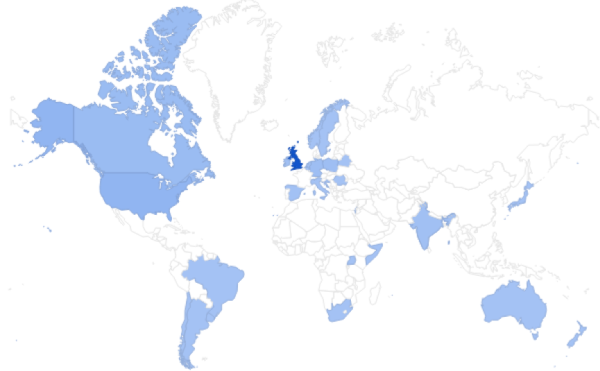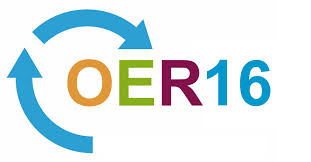Earlier this week EdWeek Market Brief reported that Amazon is developing a platform to “allow schools to upload, manage, share, and discover open education resources”. Amazon Inspire, which appears to be aimed squarely at the US K-12 education sector / market (you decide) will enable users to
“to add ratings and reviews, and to receive recommendations based on their previous selections. Educators will be able to curate open resources, self-publish material they have developed, and put a school’s entire digital library that is open and freely available online.”
Although Amazon admit they haven’t nailed down a business model to ensure the platform’s financial sustainability, harnessing the company’s formidable recommender system to sell products that complement lessons and resources, is likely to feature prominently somewhere along the line. Amazon are sufficiently confident that they can guarantee the platform’s sustainability that Andrew Joseph, vice president of strategic relations for Amazon Education stated
“We’ve made a commitment that we will never charge for this,” Joseph said, noting it will be “a completely free, open platform for free resources.”
I’m tempted to say “we’ve heard that before”, but that would be cynical of me. And of course “free” and “open” aren’t quite the same thing, but lets come back to that in a minute.
Of course Joseph doesn’t miss an opportunity to take a pot shot at Google
“teachers spend 12 hours a week on content creation and sharing on their own,” said Joseph, using Google Drive or shared folders within a district. “If you think about those resources, they’re not all that discoverable or sharable.”
Quite.
Unsurprisingly, this announcement has already sparked considerable discussion online. Stephen Downes was one of the first to comment on this development, noting that Amazon already has a significant presence in the education sector, providing access to tools, a grant programme and cloud services. Matt Reed of Inside Higher Ed was generally enthusiastic about the development, speculating that Amazon Inspire could do for OER what iTunes did for podcasts. He does add a note of caution though, asking
“Are they trying to kill commercial publishers? Harvest student data? Commission hagiographic treatments of the life of Jeff Bezos? Amazon isn’t known for philanthropy.”
Like many commentators Reed focuses on the potential ability of OER to reduce the astronomical cost of textbooks in the US. While I agree that reducing the cost of textbooks is undoubtedly a Good Thing, (though of considerably less benefit to education in the UK), focusing on this as the primary benefit of OER, rather misses the much wider potential of open education. Replacing a paid thing with a free thing, is certainly good, but does little to challenge the commercialisation of the education, particularly if the free thing is being provided by a commercial behemoth. This is a point that Jim Groom raised on twitter.
And then there’s the whole issue of open and free. Will the resources hosted on Amazon Inspire really be open? Or will they be free? The EdWeek report makes no mention of whether resources will carry a CC licence, in fact there is no mention of licensing at all. If they don’t use CC licences can Amazon really market this as OER ? Pat Lockley thinks they can.
Whatever Amazon Inspire transpires to be, it’s certainly an interesting development at a time when the sustainability of open educational resources and OER repositories, or lack thereof, is an increasingly pressing topic. This is an issue that Viv Rolfe, David Kernohan, Leo Havemann, Pat Lockley, Simon Thomson and I will be exploring in a panel session at OER16 called Web Today, Gone Tomorrow: How can we ensure continuing access to OERs? and I suspect it’s an issue that will surface repeatedly during the conference. If sharing OER through web platforms such as YouTube and Flickr is already common practice, would sharing them through Amazon really be problematic? I don’t know. Without knowing more about the platform and the business model it’s too early to judge.
One final point…I was very interested to note that Amazon Inspire will be partially based on the Learning Registry, but that’s a topic for another blog post.
Links


 You need to download actionbound app #oer16 pic.twitter.com/uuDaPfhVIP
You need to download actionbound app #oer16 pic.twitter.com/uuDaPfhVIP If open is answer then what is question #oer16 @catherinecronin some thinking along with http://wikieductor.org/Goopen pic.twitter.com/Hu2V5MYi7H
If open is answer then what is question #oer16 @catherinecronin some thinking along with http://wikieductor.org/Goopen pic.twitter.com/Hu2V5MYi7H Evaluating blog corpus on open education nice work from @dkernohan now on to semanometrics and citation metrics pic.twitter.com/rI98Nt78jN
Evaluating blog corpus on open education nice work from @dkernohan now on to semanometrics and citation metrics pic.twitter.com/rI98Nt78jN Three strands of the vision #oer16 pic.twitter.com/Q6BAoRxRld
Three strands of the vision #oer16 pic.twitter.com/Q6BAoRxRld Read (& comment on) the Scottish Open Education Declaration. #OER16 http://openscot.net/declaration/ pic.twitter.com/Wd7xWUa17b
Read (& comment on) the Scottish Open Education Declaration. #OER16 http://openscot.net/declaration/ pic.twitter.com/Wd7xWUa17b









